![Image for The Morality of Mrs. Dulska, 2013 TV Movie [Moralność pani Dulskiej]](https://edu.lvivcenter.org/wp-content/uploads/2022/10/moralnosc-pani.jpg)
- Title:
The Morality of Mrs. Dulska, 2013 TV Movie [Moralność pani Dulskiej]
- Author:
- Year:
- 2013
- See more:
- watch the film
- Original language:
- Polish
Related sources:

“Świat Płciowy”on prostitution in Lviv, article 1905
This article was published in Lviv' monthly Świat Płciowy (Sexual World) and was based on 1904 statistics. In the Habsburg Empire prostitution was controlled by police registration. The system of control distinguished two forms of sexual trade - registered and unregistered prostitution. Persons suspected of the latter were subject to legal prosecution. Prostitutes had to undergo regular medical check-ups at their own expense and pay for treatment if needed. These circumstances were one of the most obvious motives for avoiding entering the register. According to Nancy M. Wingfield's research, 90% of women who worked in the sex trade in the late Austrian Empire were not registered with the police. In early 20th-century Galician...
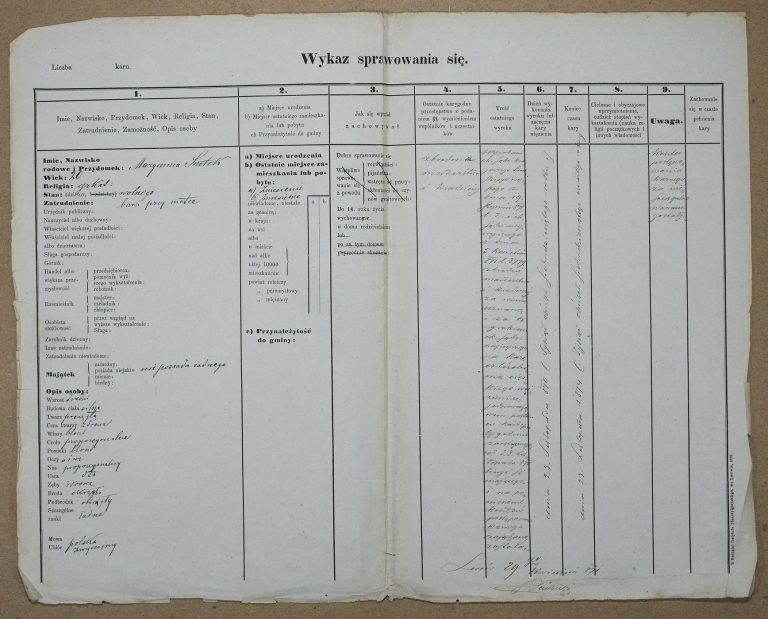
The Case of Maria Shutek on Infanticide, Lviv, 1870-1871
This text presents a fragment of Maria Shutek’s interrogation in her 1870 infanticide trial, where she was accused by the Lviv Regional Court. In her testimony, she provides her account of the crime and the circumstances leading up to it. The detailed autobiographical statement required from defendants for investigative purposes not only sheds light on the crime but also offers a window into Shutek’s life. Though such accounts were written more out of compulsion than voluntary reflection, the autobiographical narratives of criminal cases paradoxically offer a more balanced representation than traditional autobiographies. This is because they were cross-referenced and corrected by the testimonies of others during their creation. For legal purposes, these narratives...
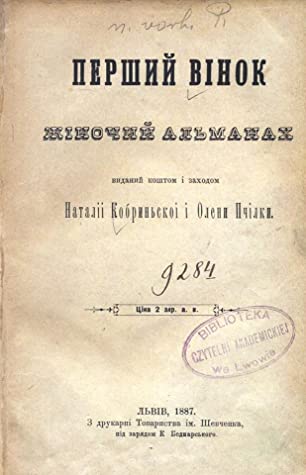
Anna Pavlyk Essay “Worker girl” Lviv, 1887
It is a polemical essay by a young Ukrainian socialist, Anna Pavlyk, about urban female workers and the challenges of their status as wage-earners and low-paid participants in the urban labor market. Anna knew about the peculiarities of this status from the first month. The woman worked as a seamstress or a maid for most of her life. The essay was published in Lviv in 1887 in a women's almanac, "The First Wreath." It was initiated and published by writers Natalia Kobrynska and Olena Pchilka as the first Ukrainian-language publication of women authors. Anna Pavlyk attempts to produce a collective portrait of the lowest strata of the social ladder – the daughters of...
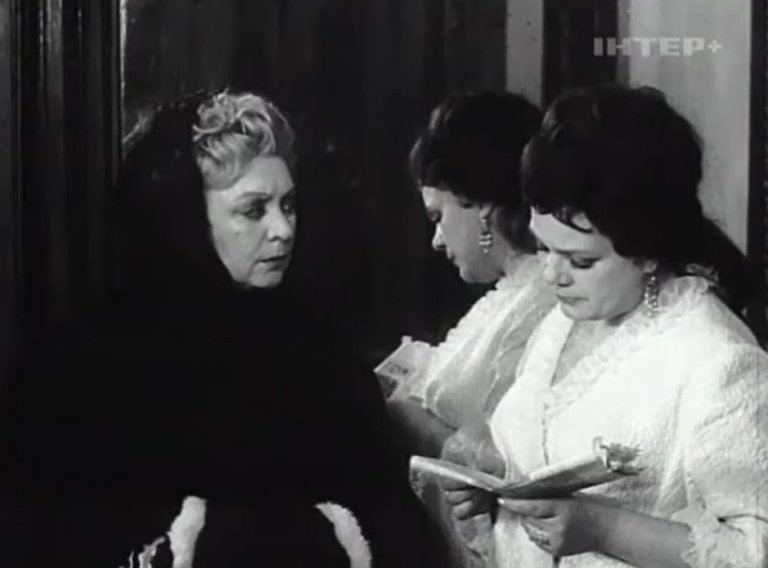
For the Family Hearth, a 1970 film
The film is an adaptation of the novel of the same name by Ivan Franko, written in 1892. In his story, the problem of sexual slavery (or “white slavery” in the terms of those times) and women’s engagement as its victims and enablers. The author’s choice of topic must have been influenced by the lawsuits against human traffickers that were actively taking place in Galicia at this time. One of the most high-profile cases was the Lviv trial in 1892 against 27 traffickers (men and women) accused of organizing sexual traffic abroad. The investigation confirmed 29 cases of selling girls from Galicia to brothels in Constantinople, Egypt, and India. The “white slavery” usually...
In the 19th century, the gender pact dividing public and private spheres, as man-owned and women-inhabited, found its most solid reasoning. In this vision, the city as the most obvious embodiment of public life, seemed to be male by default. Women in the city were taken as potentially threatened. This was evidenced by a number of prohibitions, which could include not only certain places inaccessible to women, such as universities in Lviv until the late 1890s, but also ordinary everyday experiences that they could claim only at the cost of their own reputation. In this module, historian Ivanna Cherchovych will try to look at the city from its women's experiences.
On Sunday, September 10, 1893, at about 11 p.m., in the vicinity of ul. Rappaporta, Maria Kopańska, a maid, was attacked by four men — Stanisław Julian Starzewski, Michał Bendyk, Antoni Równy and Emil Bilo. The company was returning from a restaurant on ul. Szpitalna. As they later admitted, they "had been drinking vodka and beer" there. On ul. Rappaporta they saw Maria, who was walking home alone from a wedding. For the woman, the encounter ended in a gang rape. The court proceedings, which soon began on the victim's claim, although confirming the fact of violence, released three defendants from criminal liability. The fourth one, Emil Bilo, was never brought to trial,...
Worked on the material:
- Research, comment
Ivanna Cherchovych
- Photo
“Moralność pani Dulskiej” (2013, director Marcin Vrona), screenshot
Comments and discussions

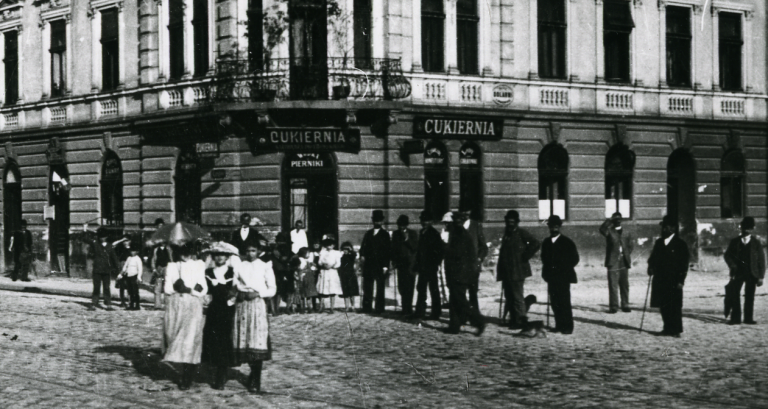
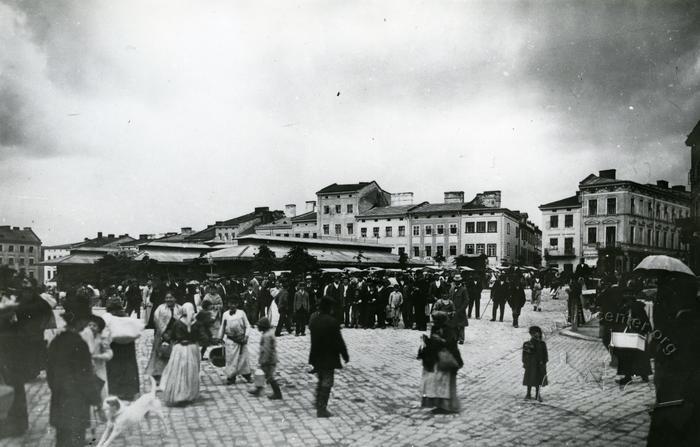
It is a screen adaptation of the same name work by the Polish writer Gabriela Zapolska, written in 1906. The play’s plot reveals the problem of social inequalities and moral degradation of the Galician society at the turn of the nineteenth and twentieth centuries, where these inequalities were crucial. The author chose female characters as protagonists. According to literary critics, the prototype of the main character in this text, Aneli Dulska, was a prominent Lviv-based author, Mrs. Golanbova (pani Gołąbowa). The prototype’s name is also associated with a Lviv woman named Czeslawa Dulska. In response to a survey published in 1905 by the famous local newspaper Wiek Nowy, she described her housekeeping system based on selfishness, stinginess, and strict attitudes to housemaids. Lviv, as a setting of the story, is also illustrated by the city-related toponyms mentioned in the report. Mr. Dulski takes a walk on the High Castle. The text also mentions the names of the then Lviv suburbs, Bryukhovychi and Zamarstyniv. The film adaptation by Marcin Vrona offers a modern interpretation of the key theme of Gabriela Zapolska.